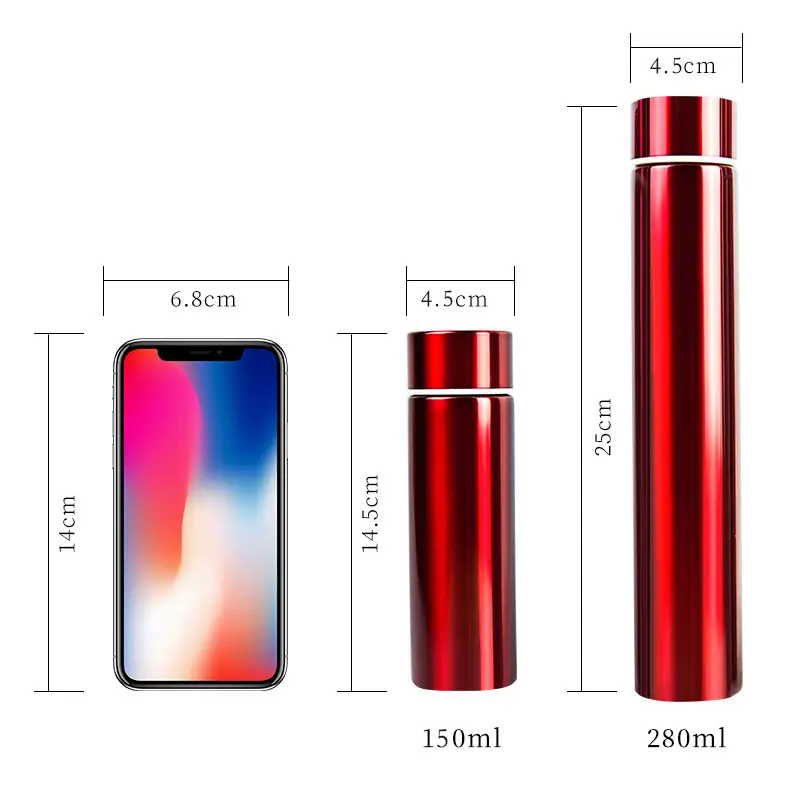Can PC plastic cups hold boiling water?
Many people like to useplastic water cupssuch as space cups to make tea and drink, but many are worried that toxic substances will enter the water when boiled water is filled in plastic cups. Let Brother Chao give you the correct answer to such a tangled question.

PC plastic is a widely used material, mostly used to make baby bottles, space cups, etc. Many people believe that because the bisphenol A contained in PC plastic may be related to breast, prostate and reproductive system diseases, and may also induce certain cancers, it should not be used to hold hot water.
Ryan is here to tell you that containers containing bisphenol A are safe and will not cause toxicity below the specified upper limit of use temperature. However, based on the principle of "caution", the EU has banned the sale of PC plastic baby bottles containing bisphenol A. .
Types of plastic
I believe everyone will find the triangular logo under the plastic product. First, let’s take a look at the signs and usage range of commonly used plastic products. There are big differences in the use of different plastic material products.
What is bisphenol A?
Bisphenol A is a chemical raw material used in industry to synthesize materials such as polycarbonate and epoxy resin. Polycarbonate (PC) is a transparent hard plastic often used to make the body of baby bottles. Scientists have found that long-term low-dose bisphenol A intake can also cause "adverse changes" in certain physiological indicators in experimental animals. This "low dose" is comparable to the maximum amount of bisphenol A that the human body may ingest. Based on this, many scientists have questioned the safety of bisphenol A.
Due to the existence of bisphenol A, Canada became the first country to ban bisphenol A from the shelves in 2010; in March 2011, the European Union also banished bisphenol A; but in fact, until now, there is no direct evidence to support bisphenol A. A has major food safety concerns for babies. In other words, we can neither be sure that bisphenol A is harmless nor that it is harmful. But when it comes to food safety, especially for infants and young children, we need to take a more conservative approach. The way of handling bisphenol A is a manifestation of such "caution" [3].

Will there be problems with normal use?
So apart from the cautious approach to food safety for infants and young children, is normal use by adults really so harmful? In fact, there is no need to panic. In fact, PC is washed and precipitated at the final stage of synthesis to remove unreacted bisphenol A and salts. The processing of PC requires strict drying to avoid decomposition. Although PC products may be in contact with water for a long time during use, they will not decompose to produce bisphenol A below the upper limit temperature specified in the container. Some studies have found that the thermal decomposition of PC with qualified initial phenol content to release phenolic substances reaches a high temperature of about 200°C, which is far higher than the normal use temperature of water cups and so on.
The national standard "Hygienic Standard for Polycarbonate Molded Products for Food Containers and Packaging Materials" (GB 14942-1994) stipulates that the free phenol content of food containers and packaging materials processed from polycarbonate resin for food packaging is It should be controlled below 0.05m g/L. Polycarbonate (PC) can be used for a long time at -60°C to 120°C. Its embrittlement temperature is -100°C and the maximum use temperature is 140°C.
Plastic selection & water cup selection
Try to choose plastic drinking cups in large or regular shopping malls and supermarkets, and do not be greedy for cheap. Take polycarbonate (PC) plastic drinking cups as an example. Non-standard processing and rough materials will release bisphenol A during the process of holding hot water. The higher the temperature, the greater the release rate and the faster the release rate, which is harmful. Human health. Regular sales merchants will check the production license, food hygiene inspection report and relevant qualification certificates of the plastic drinking cup manufacturers. Try to choose products from well-known companies or regular companies. Hazardous substances such as free phenol, acrylonitrile monomer and residues that are easy to appear in plastic resins all have mandatory national health standards to limit the content. Products produced by companies must meet the limit requirements. Only products that pass the inspection can leave the factory for sale.

Smell the smell, inferior products have a pungent odor (odour).Check the appearance for defects or blemishes.
- The cup body has no cracks or chips.
- The surface is smooth, without scratches or flashes, and the inner wall has no obvious scars or scratches.
- The cup body has no obvious water absorption lines, no bubbles, smooth color and no obvious impurities.
- The cup body is free of stains and precipitates.
- The printed fonts and patterns are clear and complete, without obvious fading, errors or other defects.
Summary: knock on the blackboard and highlight:
- Different plastic materials should be used according to regulations;
- Although bisphenol A may be present in PC plastic cups, bisphenol A will not be decomposed when used under the specified upper temperature limit;
- PC materials have been banned from being used in infant food packaging and baby bottle products;
- When selecting, pay attention to the location, smell and appearance integrity, and use it in accordance with regulations.
I hope that this content can give everyone peace of mind when they are worried. PC plastic cups produced by regular manufacturers will not cause harm to the human body when used at the specified online temperature.










